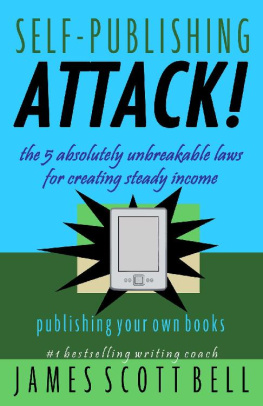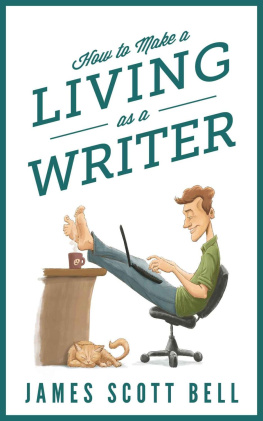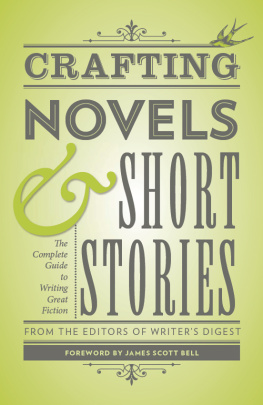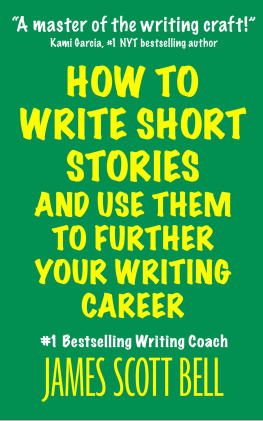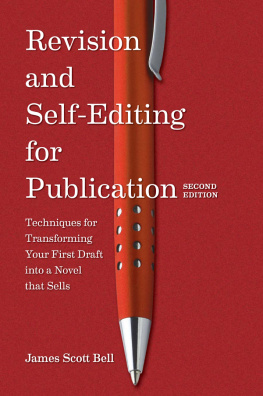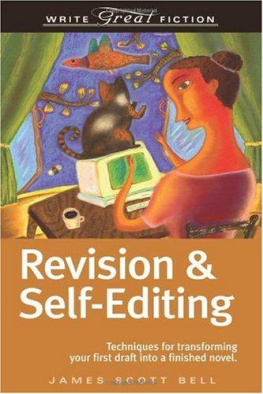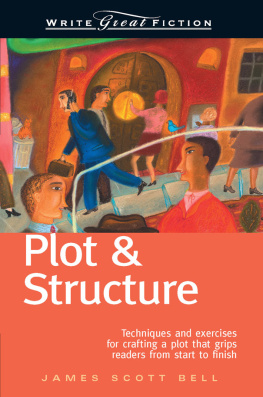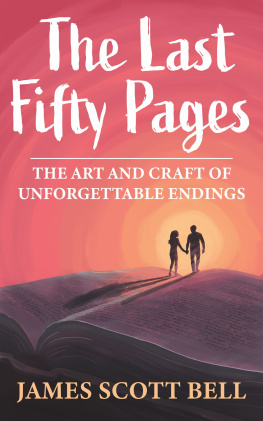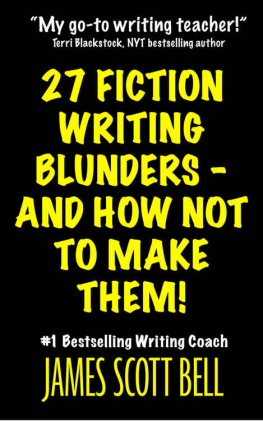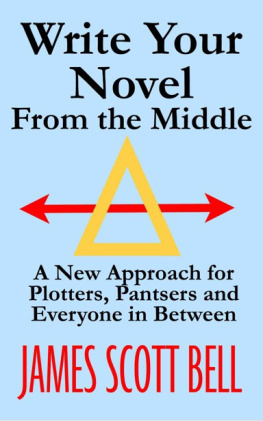Self-Publishing Attack!
The 5 Absolutely Unbreakable Laws for Creating Steady Income Publishing Your Own Books
James Scott Bell
#1 Bestselling Writing Coach
Award Winning Thriller Author
"As an author with over eighty published books, I'm always interested in learning new strategies to give my older/out-of-print titles new life. In this e-driven age, getting those books onto Kindle, Nook, and so on is critical. Kudos to James Scott Bell for giving me the tools I needed to see that happen." Janice Hanna Thompson, author of The Director's Cut
Copyright 2012 by James Scott Bell
All rights reserved
Published by
Compendium Press
Table of Contents
PART ONE: THE DREAM
He felt that his whole life was some kind of dream and he sometimes wondered whose it was and whether they were enjoying it.
Douglas Adams, The Hitchhiker's Guide to the Galaxy
It Begins
One day in the merry month of May I noticed my bank account was larger than it had been the day before.
I immediately thought of Monopoly. "Bank Error in Your Favor. Collect $200."
Only this was more than $200.
Looking into it I saw that I'd received a direct deposit from Amazon and their Kindle Direct Publishing program.
I called out to my wife.
She wasn't there. I was in the house alone. That's usually the case because I'm writing and my wife is out in the real world doing something of great value and being with actual people. People who are not tied down to a keyboard, monitor and chair calling out to people who aren't in the house.
So I called her on the phone and gave her the good news. Because she was part of the reason it had come.
I was one of those holdouts for the romance of the physical, printed book. I love books, always have. I have shelves and shelves of them (like many dedicated readers, I can hardly bear to give my books away).
Most of my life has been spent with booksreading, toting, collecting and traveling with them.
When we got married, I told my wife she'd have to be willing to go into any used bookstore we happened to walk by in any city we visited. She was fine with that, as she loves books, too.
But then for Christmas, 2010, Cindy got me a Kindle.
There it was, in my hands, this nifty but controversial little device. I say controversial because many were calling it a weapon of destruction. Death to books! Death to print! Death to a great industry called publishing!
Maybe I was thinking this a little bit, too.
But when I started to download...
Suddenly, I had the complete (complete!) works of Jack London, for $2.99.
I was studying the Civil War at the time and saw that the two-volume, Pulitzer Prize winning history of the war by James Ford Rhodes, published in 1918, was available...again, for $2.99!
Astonishing, incredible, fabulous, wonderful.
Then there was the amazing Project Gutenberg onlinethousands of classics in the public domain, free for download. In Kindle format! I got several books I'd long wanted to read, like Theodore Dreiser's Jennie Gerhardt and Edward Bulwer-Lytton's The Last Days of Pompeii.
And they cost me zip.
There were new books, too, by writers I already followed, like Dean Koontz and Michael Connelly. I paid "normal" prices for these ebooks and I had them now. I didn't have to drive to a bookstore or wait for the UPS guy.
And when I traveled, I didn't have to stuff a couple of paperbacks into my carry-on. I had a virtual library with me inside the Kindle... not to mention Mine Sweeper and Sudoku.
Also a boatload of samples that I could browse at my leisure.
Hog heaven, as they say, especially for an ex-ham like me.
Yes, the Kindle was indeed a game changer. And I knew there was no turning back or stemming the tsunami that was heading for the publishing industry.
I'd also been reading about the authors who were jumping into indie publishing in a big way.
People like J. A. Konrath and Bob Mayer and Barry Eisler.
In fact, the big news just coming in was that Mr. Eisler had turned down a $500,000, two-book contract from St. Martins to go completely indie!
Things were, to put it mildly, getting interesting.
Traditionally published authors were champing at the bit to put out their own ebooks, though some were getting blowback from their publishers. (One author, in fact, had come out with a series of short stories in the same genre as her full length books. Her publisher went ballistic, cancelled her contract and sued her to get the advance back. Wow).
As someone who loves to write, the prospect of putting out more product, fast, and getting paid directly for it, was too much to pass up.
So I put out my first, self-published ebook, Watch Your Back, a novella of suspense and three short stories. I priced it at $2.99.
The first full month it was available it sold 920 copies in the domestic Kindle store.
And I thought, Hmm, maybe a writer can make some real lettuce at this thing.
I set out to figure the best way to do that, to test what I was doing, study others who were doing it well, keep notes on everything and, finally and most importantly, do it myself in actual practice.
I have, and this book is the result.
I am going to assume throughout that you want to know how to do it yourself (DIY). There are, of course, self-publishing services that offer some attractive benefits. BookBaby and BookTango, for example. And new ones coming along all the time. If you go that route, read the fine print, compare, and get recommendations. Take your time.
There is Smashwords, a one-stop distribution service (or you can pick and choose which ones you want Smashwords to handle). Many authors choose to create accounts directly with Amazon and Barnes & Noble and go through Smashwords for the rest.
As an advanced option, you can also set up your own store at your website.
The point is, you have many choices.
Choices are nice things to have.
You may already be self-publishing. If so, I want to help you keep on doing it and doing it even more successfully.
Now, if you think self-publishing is a road to getting rich quick, disabuse yourself of that notion immediately. In the early days of the indie revolution, authors who jumped in with backlist titles certainly managed to clean up nicely. But the gold rush days are over.
You cannot realistically expect that you're going to put one book out there and rake in enough to buy a summer home in Malibu.
The name of the game is to learn how to make a steadily growing income from self-publishing. It's possible. More possible for a writer than at any time in history.
The Old Days and Old Ways are Over
Back in the old days, and by the old days I refer to those days prior to November 19, 2007 (the day the Kindle went on sale), and stretching back to approximately 3024 BC, it was very difficult for a freelance writer to make a living at his trade.
If you worked incredibly hard and managed to cultivate some reliable clientsmeaning editors at magazinesyou could perhaps eke out a minor subsistence writing things you thought were right for certain markets.
Most of your time would be taken up with research on periodicals that buy articles on subjects you find moderately interesting. You'd even take on something you didn't find interesting if you could sell it.
In short, you would constantly be trying to find things that would reach a paying market and then when you did, you would sell one-time rights and receive a minor stipend and that was that.

